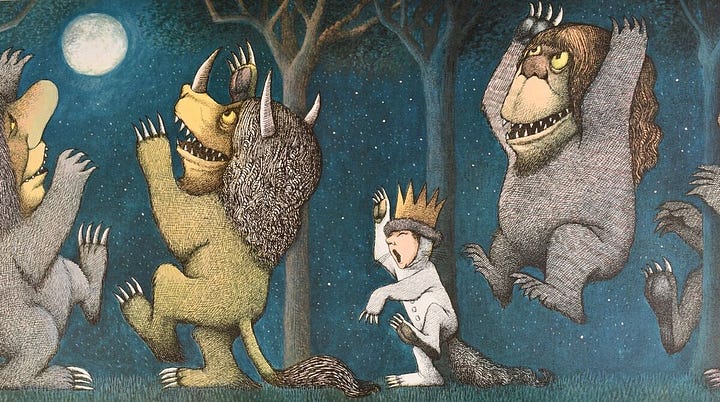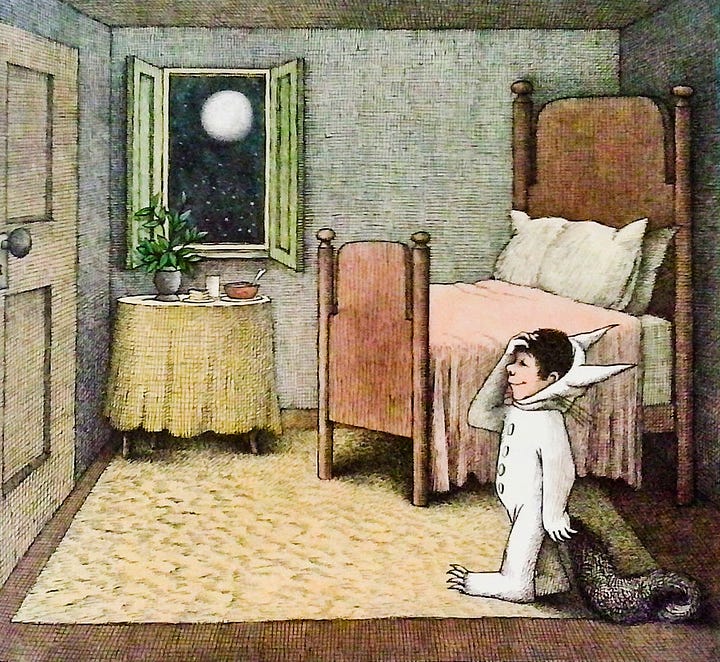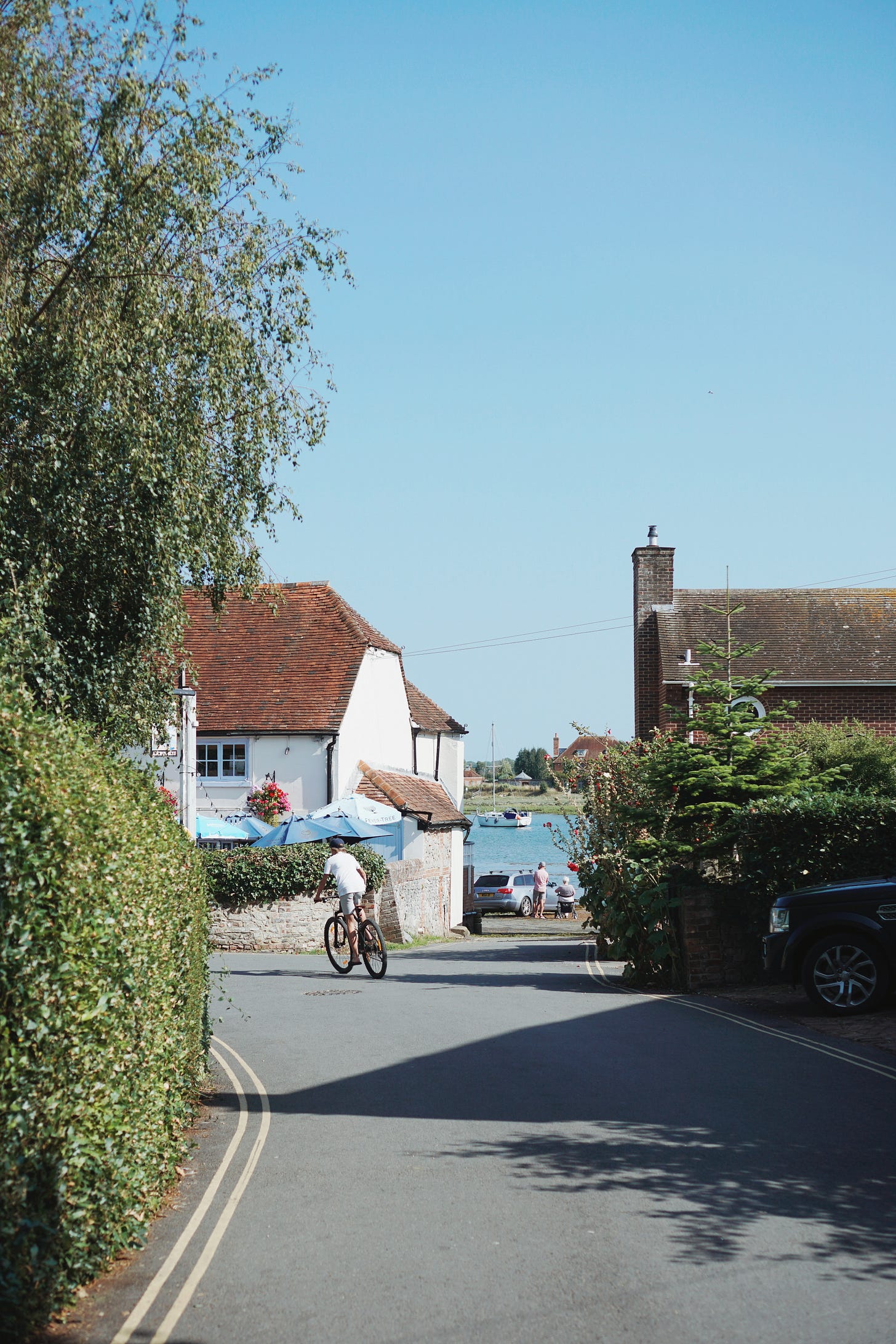Truly Wild Things
There is special providence in the fall of a sparrow...
Wild things are not ours to control.
Thunderstorms, bluebells on the forest floor, white-water flurries, bears, a leopard mid-hunt, outsized emotions: grief, joy, sadness, gratitude…
But their destination is renewed comfort, a widened spectrum of acceptance. Storms we weather and the unfamiliarity we brave through expand what we can endure, asking us to grow. Wild things take shape and run their course until, eventually, finding harmony.
In Where the Wild Things Are, Max is sent to sleep without supper for his mischief around the house in a wolf suit. He escapes to an island, where he finds roaring monsters with sharp fangs. The monsters love Max so much that they celebrate him as the king of all Wild Things. After the rumpus is over, Max starts to miss home, his mom — as wild things often do, longing for their calming anchor.
The more wildly the wind blows, the stronger the roots. When the dream is over, Max finds himself back in his bed. Warm soup sits on the night stand. The softness of returning home.


Wild things are air bubbles before a rolling boil, tingling to erupt at the top so the temperature stays constant. Wild things are porous happenings, as malleable as their opposite, pushing the spectrum of our experiences, reaching for expanded peace.
Wild things are desires, mouth agape at the cusp of speaking something important. Wild things are a heart welling up, a crush, a yearning to know, an instinct off the beaten path, disruptions, a surprise, new depths and kaleidoscopic colors, something to remember. Wild things are intense, transformative, but always passing through.
But then there are truly wild things, which are wild in a different way altogether, outside the boundaries of what we can control or even comprehend. Fate, people we meet who change our lives. Chance encounters at the right place, right time. Friends who become sisters, lovers who become soul mates. There is special providence in the fall of a sparrow, Hamlet replies. If it be now, 'tis not to come; if it be not to come, it will be now; if it be not now, yet it will come. The readiness is all.
If wild things are like the weather, truly wild things are the earth, ocean, and air that hug us and shape us. The landscape of meaning that we are made of, truly wild things represent both the greatest mysteries and the most ordinary miracles.
Truly wild things disobey senses and plans. They are truly wild because we don't know how they happen, yet they happen nevertheless, and we are nothing without them.
The truest, wildest thing of all: that maybe after all, being human feels like we live inside a story being written for us. We anticipate, wonder, and turn each corner not knowing what we’ll find. Life goes on whether we understand it or not.
In mystery, bewilderment lasts a lifetime. It becomes, itself, a kind of faith. So we keep turning pages in a book whose author remains beautifully, wildly unknown, because maybe, maybe, the author may just be us.


